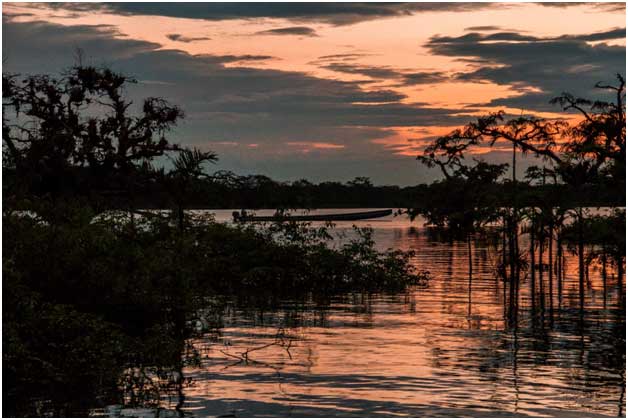Ecuador in Frontline to Address Climate Change

QUITO, Ecuador, Jun 05 (IPS) - Matilde Mordt is UNDP Resident Representative in Ecuador
As the UN commemorates World Environment Day, UNDP would like to take this opportunity to commend Ecuador's efforts to address climate change and its commitment to raising its climate ambition.
Ecuador is at the forefront of delivering climate action, and in the frontlines of Nationally Determined Contribution (NDC) design. It has gone from an Intended Nationally Determined Contributions (INDC) presented in Paris, that defined targets for only two sectors: Energy and Agriculture, Forestry and Other Land Use, to a revised NDC 2020-2025 which includes both mitigation and adaptation.
This ambitious NDC is one of the first registered before the UNFCCC for the 2020 round, and the first to fully use the guidelines for NDCs agreed in Katowice at the end of 2018. It has several features worth highlighting:
Firstly, it has been formulated in a way that is fully aligned with national priorities as defined in the National Development Plan. It is likewise aligned to the 2030 Agenda, contributing to numerous SDGs;
Secondly, it has been developed in a highly participatory manner, gathering more than 150 institutions from public and private sectors, academia, and civil society, including over 1,000 participants.

It is important to note that all relevant ministries were involved in the process, including also the national disaster risk reduction system, municipal and provincial governments, to ensure a whole of government approach and coherency between interventions;
Finally, UNDP´s NDC-Support Programme developed and applied a methodology for a gender-sensitive formulation of the NDC. This not only ensured equal participation of men and women in the process, but also provided tools to identify gender gaps, and proposed solutions to reduce inequalities and ensure a fair distribution of benefits.
This is also a first for the NDCs globally, and we would like to congratulate the Government of Ecuador for embracing this approach.
Throughout the NDC preparation process, UNDP provided a platform for integrating public and private sector, academia, and civil society in discussions, and we developed and applied innovative methodologies such as design thinking to enhance the contributions of participants.
We also integrated the support of sister UN Agencies during the process; reaching out to UN Women for gender mainstreaming and to the Food and Agriculture Organization (FAO) for technical assistance on agriculture, forestry and land use.
UNDP's vast network of experts, knowledge and resources was used to facilitate the NDC preparation, including national level projects and global programmes such as the NDC Support Programme, REDD+ and BIOFIN. This is an example of our Global Policy Network in action.
The process would not have been possible without the continuous backing of our main donors, European Union, Germany, Norway, Spain and Italy, as well as the Green Climate Fund (GCF) and Global Environment Facility (GEF).
UNDP has already been actively involved in the implementation of concrete climate actions in Ecuador for the last 20 years. Ongoing efforts will constitute building blocks for its NDC implementation going forward.
For instance, we support Ecuador to implement a combined GCF and GEF project in the forestry/REDD+ sector in the Amazon, that not only helps Ecuador comply with international climate and environmental commitments, but also supports communities – indigenous peoples and rural populations, men and women - to improve their livelihoods.
We are uniquely positioned to work in the intersection between environmental sustainability and poverty reduction, aiming precisely at leaving no one behind.
Ecuador's NDC will now be implemented through an Action Plan, complemented with a Financial Strategy and Monitoring, Reporting and Verification system as the tracking tool. Sustained support from the international community to maintain this progress is key for allowing Ecuador to advance on this path. At UNDP we stand ready to continue supporting these efforts.
This links to the upcoming Climate Summit, to be celebrated in New York this September. We know that unprecedented efforts are required from all sectors of society to tackle the climate emergency – and we know that the task is urgent.
Ecuador has increased its level of ambition and will be pleased to continue sharing its experience and contribute to lessons learned and good practices.
© Inter Press Service (2019) — All Rights Reserved. Original source: Inter Press Service

